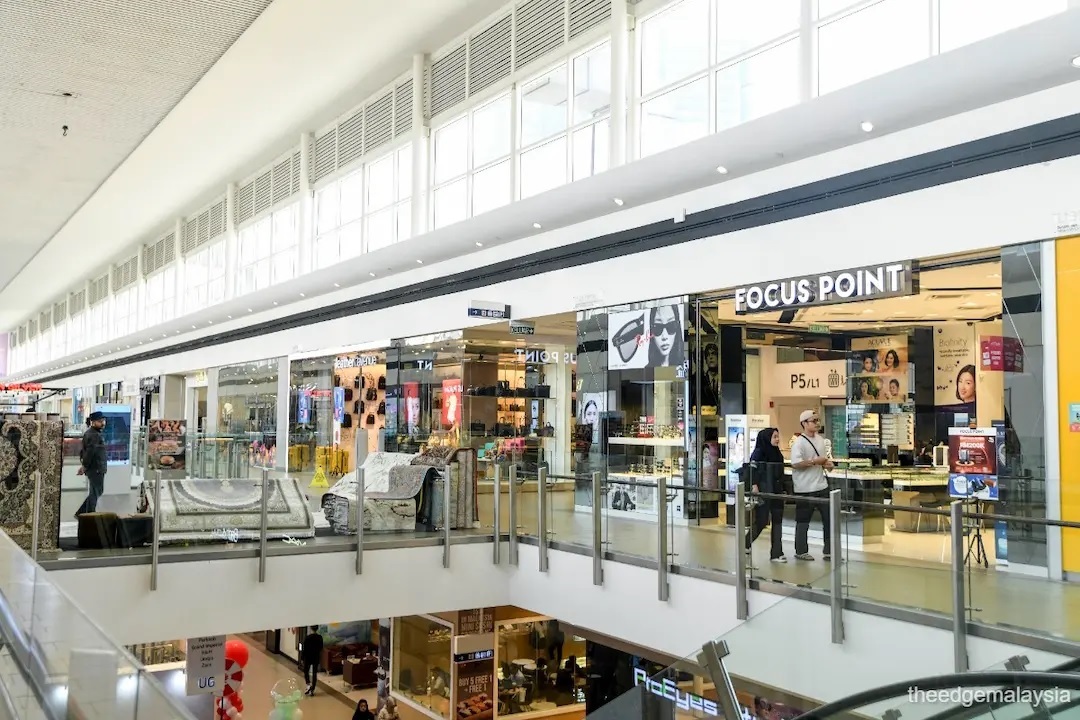
- Malaysian Shopping Malls Association: "This announcement of a potential 15% increase in TNB tariffs is expected to place enormous financial pressure on both operators and consumers. As commercial building operators pass on these costs, the impact on consumer prices will be unavoidable, driving inflation and putting further pressure on household disposable income and spending power."
KUALA LUMPUR (Dec 31): Shopping mall operators said the proposed electricity tariff hike will put further financial pressures on them, who are still grappling with post-pandemic challenges, and ultimately lead to higher prices for consumers.
The Malaysian Shopping Malls Association (PPK) is urging authorities, including Tenaga Nasional Bhd (KL:TENAGA) (TNB), to reconsider the planned electricity tariff hike scheduled for July 2025.
"This announcement of a potential 15% increase in TNB tariffs is expected to place enormous financial pressure on both operators and consumers. As commercial building operators pass on these costs, the impact on consumer prices will be unavoidable, driving inflation and putting further pressure on household disposable income and spending power," the association said in a statement on Tuesday.
Among the issues it raised is the significant increase in the Imbalance Cost Pass-Through (ICPT) tariff, which surged by 800% from two sen per kilowatt hour (kWh) to 16 sen per kWh.
This, according to PPK, accounts for about 50% of total energy bills for commercial properties, such as malls, hotels, and office operators.
For a typical mall spanning 500,000 square feet, PPK estimates the additional electricity cost to be RM5 million annually.
"We would like to appeal to TNB and related authorities to consider a more equitable pricing structure instead of burdening the mall industry and, eventually, our consumers," it said.
Last Thursday, TNB announced that the base electricity tariff for Peninsular Malaysia would be raised to 45.62 sen per kWh under Regulatory Period 4 (RP4) between 2025 and 2027, up 14.2% from 39.95 sen under RP3 in 2022-2024.
This prompted manufacturers, represented by the Federation of Malaysian Manufacturers, and other trade groups such as the Malaysia Retailers Association and the Malaysian Iron and Steel Industry Federation, to issue statements opposing the tariff hike.
Beyond electricity costs, PPK highlighted other rising costs that are compounding the challenges faced by mall operators, including the recent hikes in minimum wages and water tariffs.
"Combined, these factors have led to an overall operating cost increase of up to 140%. The severity of this cost escalation has resulted in higher charges for goods, services and rental rates, directly impacting malls’ retail partners and consumers," the association said.
Additionally, PPK noted that statutory fees and licences have also surged. The renewal fees for lifts and escalators under the Department of Occupational Safety and Health have risen by 300% to 500%, with costs now ranging between RM650 and RM1,900 per lift, compared to the previous RM192 to RM392 range.
"These compounding cost pressures will undoubtedly make the coming year an exceptionally challenging one for the commercial sector as well as consumers in terms of rising prices resulting in strong inflationary pressures," it added.
Looking to buy a home? Sign up for EdgeProp START and get exclusive rewards and vouchers for ANY home purchase in Malaysia (primary or subsale)!





